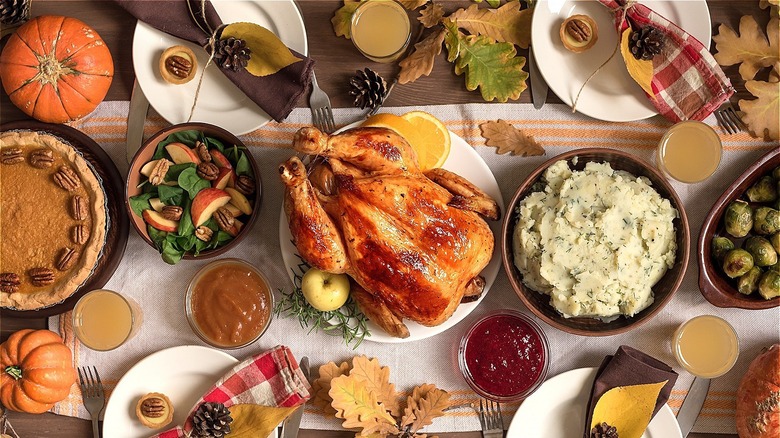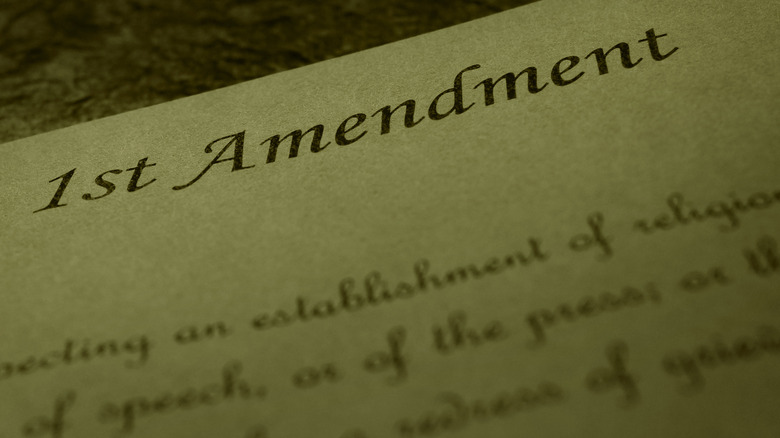Why Thomas Jefferson Wasn't A Big Fan Of Thanksgiving
For most people, present-day Thanksgiving hopefully involves a day off work, time spent with family and friends, and a feast best described as abundant. However, as with many celebrations, its original rendition is a far stretch from what we know now. Being a typically American holiday, it would be natural to assume that the nation's presidents have always been on board with the tradition. It's no secret that Joe Biden likes to eat, and the Food Network and Discovery+ special "A White House Thanksgiving" premiering this month will provide viewers with a glimpse at the celebrations and more importantly, the menu served.
However, not all presidents have been eager to engage in Thanksgiving festivities, namely Thomas Jefferson. According to History, the third president of the US had no interest in making a fuss about the holiday. While his critics suggested he simply hated Thanksgiving, his reasoning was more nuanced. At the time, the holiday was closely connected with religion and Jefferson preferred to maintain a separation between church and state.
Was Jefferson a Thanksgiving grinch?
Britannica points out that an official date for Thanksgiving was first designated in 1863. Previously, presidents would sporadically choose a day to set aside for giving thanks. Unlike the turkey feasts most Americans are familiar with, Thanksgiving day under the nation's first couple of presidents was commemorated with fasting and praying, according to Mental Floss. History explains that Jefferson's denial of these means of honoring the day encouraged his political opposers to label him as an atheist.
However, History indicates that Jefferson merely wanted to maintain the conditions of the First Amendment, which states that there will be "no law respecting an establishment of religion" (via Congress). Jefferson's opinion on the matter was likely ahead of his time and he was never able to fully express his reasons for restricting Thanksgiving day holidays. Since Americans were not privy to his exact rationale, he was assumed to be a "Turkey Day grinch," as History puts it. Nowadays, Thanksgiving no longer holds a religious connotation — unless you count the way some people worship a classic roast turkey dinner.

